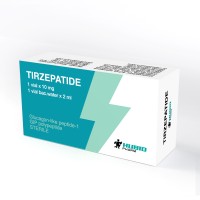Reductil 15 mg by Knoll

- $69.00
- Ex Tax: $69.00
- Price in reward points: 690
Tags: Sibutramine, reductil
Reductil is a medication used to help individuals who are obese – i.e. with a body mass index (BMI) ? 30 – to lose weight. Before a doctor will prescribe Reductil to you, you must have previously tried to lose weight by modifying your diet and increasing the amount of physical activity you do.
People who are overweight (BMI > 27) might also be prescribed Reductil if they have a high risk of becoming obese. Factors which increase an overweight individual’s risk of obesity include:
- Diabetes;
- Hyperlipidaemia;
- Hypertension.
Action:
Reductil contains the active ingredient sibutramine, which works by increasing the level of two chemicals found in the brain (serotonin and noradrenaline) which regulate appetite. These chemicals send signals which tell a person that they are becoming hungry and need to eat, or that they are becoming full and need to stop eating. Sibutramine causes an increase in the chemicals which cause a feeling of fullness or satiety (i.e. it suppresses the appetite), and can, therefore, help reduce the amount a person eats.
Reductil can also increase the rate of an individual’s resting metabolism or the amount of energy they consume when they are resting. During weight loss, it is common for the resting metabolic rate (RMR) to decrease as the amount of food consumed is decreased. This means that the rate at which the body burns up food is slowed down, which has negative effects on weight loss. Taking Reductil can stop this from happening.
Dose information:
A doctor will usually prescribe one 10 mg tablet of Reductil each day, which can be taken with or without food. The doctor will also prescribe a calorie- and fat-controlled diet and exercise. Reductil is not effective in reducing weight without also reducing calorie intake and increasing physical activity.
In special cases, where an individual fails to lose weight after eating a reduced-calorie diet, exercising and taking 10 mg of Reductil each day for 4–6 weeks, the doctor may increase the dose to 15 mg per day.
Reductil is typically used for at least six months and up to two years.
If you have any questions about the correct way to take Reductil, please speak to your doctor.
Contraindications:
Reductil should not be used under certain circumstances. Tell your doctor if you have:
- ardia (abnormally rapid heartbeat);
- Cerebrovascular or peripheral arterial occlusive disorder (a condition in which the arteries narrow or close);
- Arrhythmia (an irregular heartbeat);
- Drug, medication or alcohol abuse;
- Psychiatric illness;
- Tourette’s syndrome (a condition characterized by muscular and verbal tics);
- Inadequately controlled high blood pressure (BP > 145/90 mmHg);
- Hyperthyroidism;
- Severe liver impairment;
- Kidney disorders, including end-stage renal disease on dialysis;
- Benign prostatic hyperplasia with urinary retention;
- Phaeochromocytoma (a type of tumor associated with high blood pressure);
- Narrow-angle glaucoma;
- Age < 18 years or? 65 years;
- Pregnancy;
- Lactation;
Are taking or have taken in the last 2 weeks any medication, including:
- Medication for psychiatric illnesses (e.g. depression);
- Weight loss medications;
Any other drugs, including over-the-counter drugs and herbal supplements.
Precautions:
Special care needs to be taken when using Reductil under certain circumstances. Tell your doctor if you have:
- Bleeding disorder or predisposition to bleeding;
- Liver or kidney impairment;
- Pulmonary hypertension;
- Gallstones;
- History of seizures;
- Family history of motor or verbal tics;
- Open-angle glaucoma;
- Increased risk of intraocular pressure (including family history);
- Haemorrhoids;
- Increased risk of obesity;
- Risky sex: Women of childbearing age who are not using contraception risk becoming pregnant.
As a further precaution, the doctor is likely to monitor the blood pressure (BP) and heart rate (HR) of all individuals taking Reductil, as it has been shown to increase BP and HR in some cases. Monitoring will typically occur every two weeks for the first three months of treatment and at least every three months thereafter. The doctor may discontinue treatment with Reductil if BP or HR increases.



